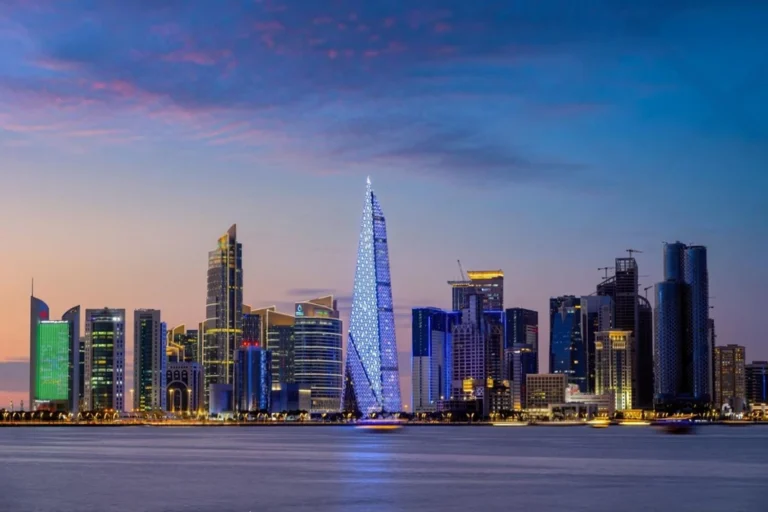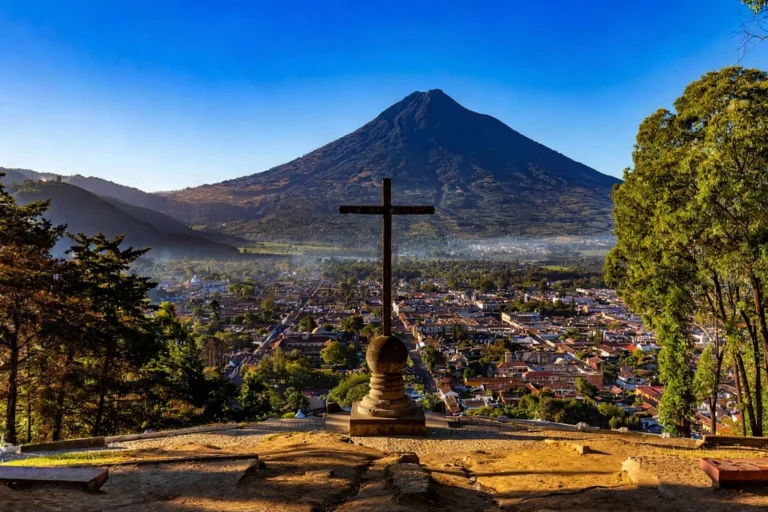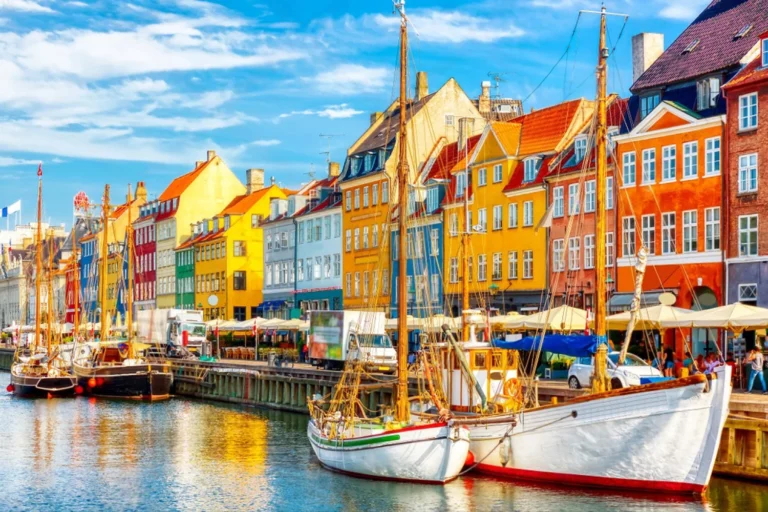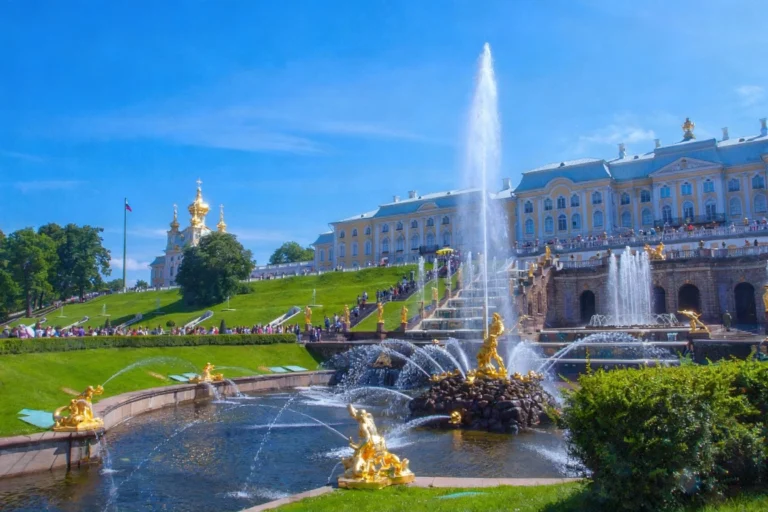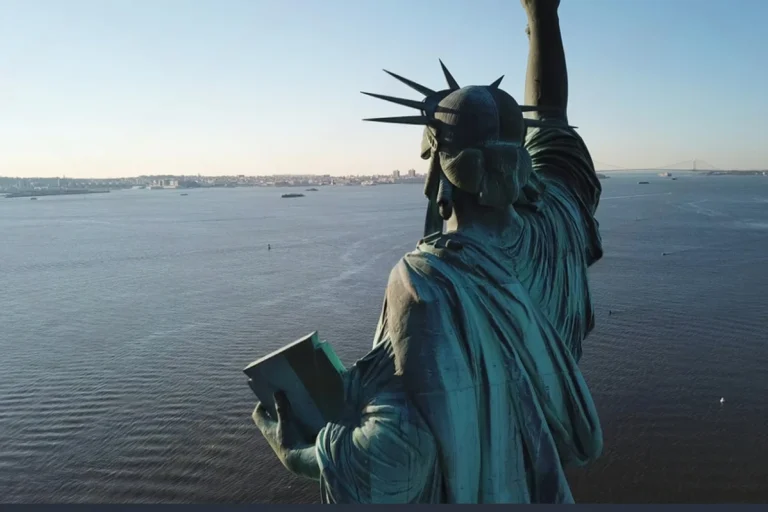Istanbul Turkey: 30 Hidden Stories Between Continents and Centuries
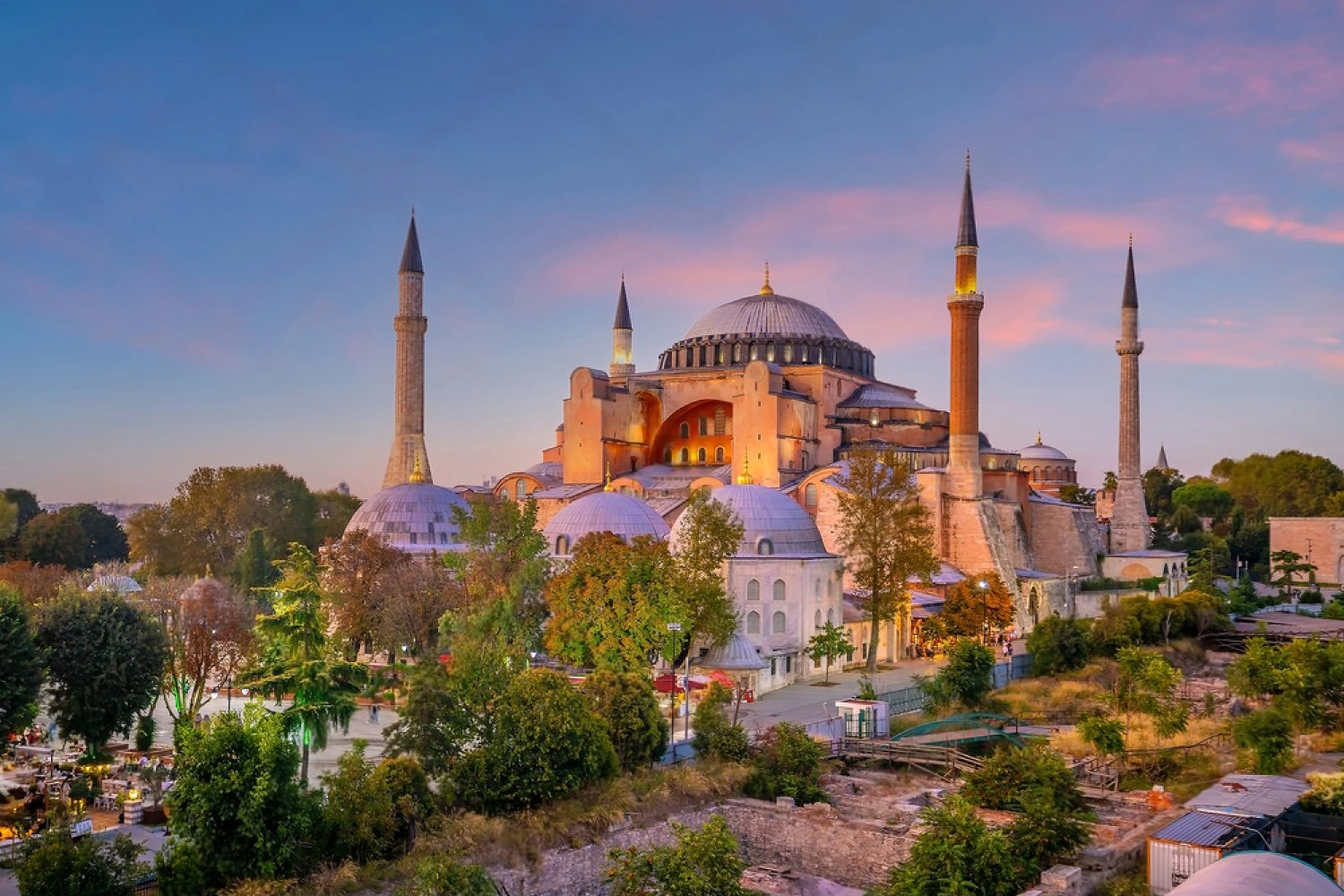
Istanbul Turkey feels like a dream stitched together from many lives. The scent of the sea mingles with roasted chestnuts, and the call to prayer floats between rooftops like a memory that never leaves. Every street seems to shift between centuries, between whispers and laughter, between East and West. Stay long enough, and you’ll sense it too – Istanbul isn’t just a city, it’s a heartbeat shared by history and hope.
The city that wears more than one name
On a creaking ferry in Istanbul, tea glasses clinked and the air tasted of salt and warm sesame. An old man nearby was humming that cheeky tune from the 1950s the one about not being Constantinople half smile tucked beneath his mustache. Overhead, gulls scribbled across the sky, and I remember thinking how a rhythm can hold a place together better than a signpost ever could.
It was Byzantium, then Constantinople, and somewhere along the way people decided it could simply be The City, because what else could compare? I’ve heard locals say the old names with a kind of fondness, like nicknames for an old friend who never stopped changing but never stopped being themselves. There’s something tender in that how the world debates labels while the streets just keep breathing, the markets keep singing, and the shoreline keeps greeting you like you’ve been expected all along.
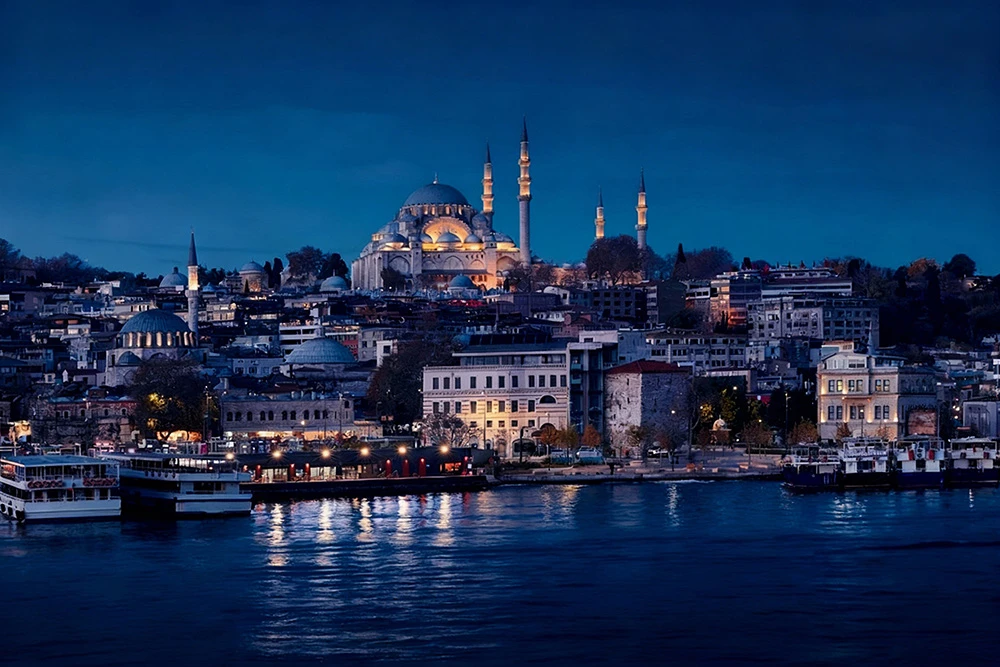
In this city, a tulip outshines domes and bridges
Of all the symbols they could have chosen, a flower still feels like the truest one. I love that it’s not a mosque or a bridge, but a tulip soft petals, dawn bright colors. In Istanbul, a bloom became a signature long before the Dutch were dreaming in bulbs; Ottoman gardeners chased new shapes and shades until the 1700s turned into a full Tulip Era. Sometimes I picture the city wearing them like a quiet crown, splashes of color along courtyards and the water’s edge.
The wild part is how far it went tulip prices climbed past gold, and people actually rioted over flowers. It sounds absurd until you remember how beauty can turn to fever, how desire makes even a petal feel like treasure. That story still lingers here a mix of softness and appetite, tea steam curling while the Bosphorus flashes silver. Maybe that’s why the tulip fits fragile and bold at once, a small reminder that this place has always loved hard.
https://en.wikipedia.org/wiki/Istanbul
A City Balancing Breakfast and Dessert Across Continents
Some mornings feel like standing on a hinge between worlds. In Istanbul, the Bosphorus carries cool salt and sesame warmth at once: gulls spin over the water, the call to prayer drifts from one shore, and ferries answer with low, patient horns from the other. Two tempos share the same air, and somehow it feels perfectly natural.
I remember an easy day when breakfast was olives, white cheese, and hot bread on the European side, and before the sun climbed high we were already sharing syrupy baklava and strong tea across in Asia. It wasn’t a stunt; it was just how the day unfolded, stitched together by water and steam. It’s the kind of place where you really can have breakfast in Europe and dessert in Asia before noon, and it reminds me that geography can be a kind of destiny only here it seems to open more doors than it closes.
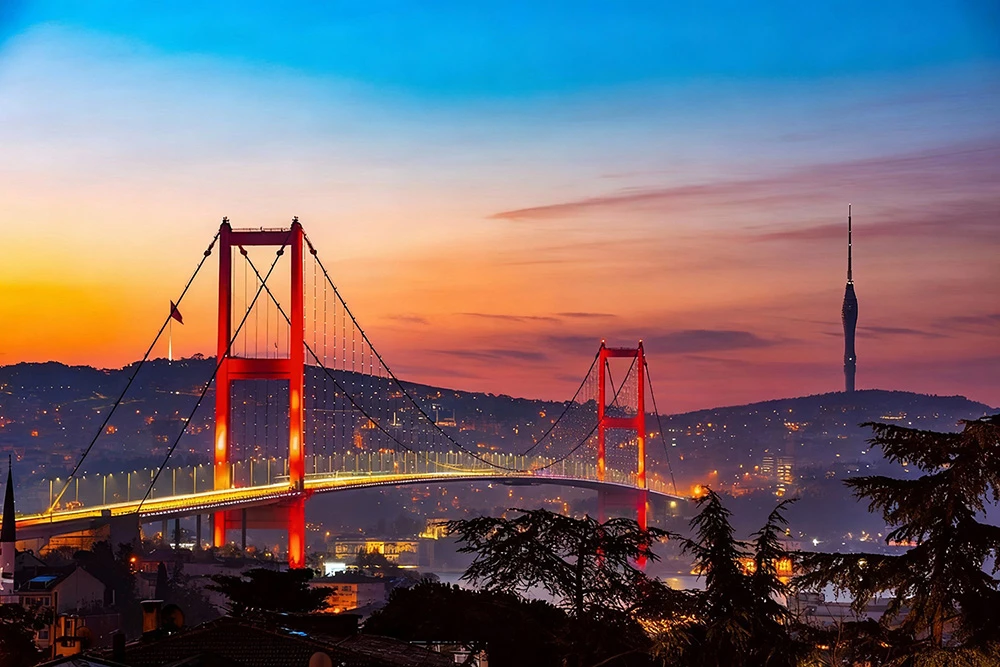
A 573-Meter Time Capsule Beneath Two Hills
Funny how a city can feel grandest in the smallest places. The Tünel is only 573 meters long, the world’s second oldest subway, born in 1875 and still humming beneath the slope with a soft, steady rumble. You step in, there’s the cool breath of stone, the faint echo of voices, and then almost before you’ve settled one hill has become another. It’s a tiny connector, just a minute or so, yet it feels like the city giving you a knowing wink.
What gets me is how it predates most of New York’s transport system, as if this little line decided early on to stitch two hills together like a quiet seam. I remember leaning into the turn and thinking how Istanbul loves to fold centuries into everyday errands, letting history ride alongside grocery bags and daydreams. It’s not about size here; it’s about the tenderness of a city that solves a steep climb with an old, enduring whisper.
A secret cathedral of water beneath Sultanahmet
The air down there surprised me – cool, damp, and softly echoing, like the room itself was breathing. Lanterns cast a honeyed glow across rows of columns, a quiet forest of stone holding up ripples of light. Beneath the old heart of Istanbul, it truly feels like a cathedral underwater, where whispers seem louder than footsteps and time moves at the pace of a slow drip.
Built in the 6th century by Emperor Justinian to store drinking water, the cistern wears its practicality like an old coat, simple and sturdy. Then you turn a corner and see them: Medusa heads set upside down at the base of columns, their purpose mysterious, their beauty undeniable. No one really knows why they’re inverted, and I love that – as if the city keeps a few secrets on principle. Standing there, I remember thinking how ordinary needs can accidentally make something profound, and how mystery gives it a tenderness logic can’t. You leave with that hush inside you, like you’ve been trusted with a story you can’t fully explain.
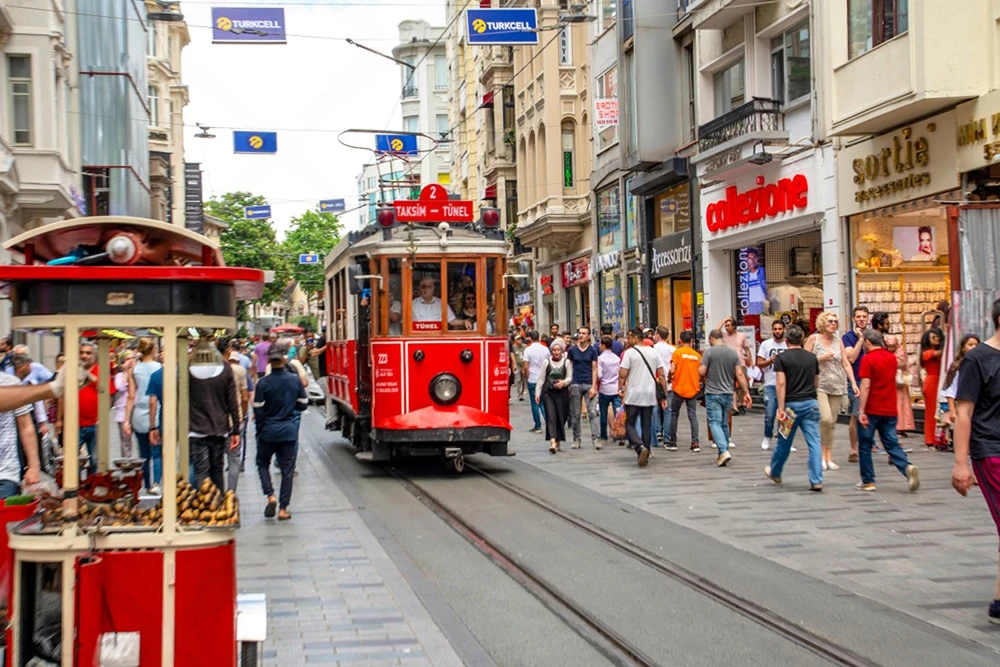
A prison that whispers marriage at sunset
It still amazes me how one address can hold so many chapters. Built in 1348, Galata Tower once confined war captives, and now it shelters a softer rumor: if two lovers climb it together for the first time, they’re destined to marry. The shift from chains to promises feels like a quiet apology from history, the way old stone learns a gentler purpose.
By sunset, the walls turn cool under your palm, the air smells faintly of sesame and sea, and the city’s noise thins to a friendly murmur. Locals drift in with shy grins, swearing they don’t believe in myths, yet timing it perfectly for the gold hour. Some walk back down with shaking hands and a ring; others carry only the wide, steady view red roofs, gulls gliding, the water blinking with late light and somehow that feels like a promise too.
I remember leaning on the rail and thinking how hope can make even ancient edges feel new. Maybe the legend isn’t about fate at all; maybe it’s a gentle nudge to say what your heart already knows. In the end, the tower is a lighthouse for hearts, and the evening answers in its warm, patient glow.
Public comfort, centuries ahead of London and Paris
It still makes me smile that one of the most “modern” luxuries, long before we started tagging wellness, was simply a clean, free place to go. In Istanbul, even the past feels faintly of soap and cool stone the hush of water in tiled courtyards, a kindness built into the architecture like a quiet promise. I remember learning that the Ottomans kept public toilets not as an afterthought, but as part of daily dignity, and something in me relaxed, like the city had been looking after strangers for centuries.
More than 1,400 of them, cleaned every day, open to anyone imagine that, when London and Paris were still figuring it out. It turns progress into something gentle and human: not a headline, but a hand on your shoulder saying, “You belong here, too.” Maybe that’s why the place lingers in the heart; it tells you that care can be public, ordinary, and still extraordinary progress measured in running water.
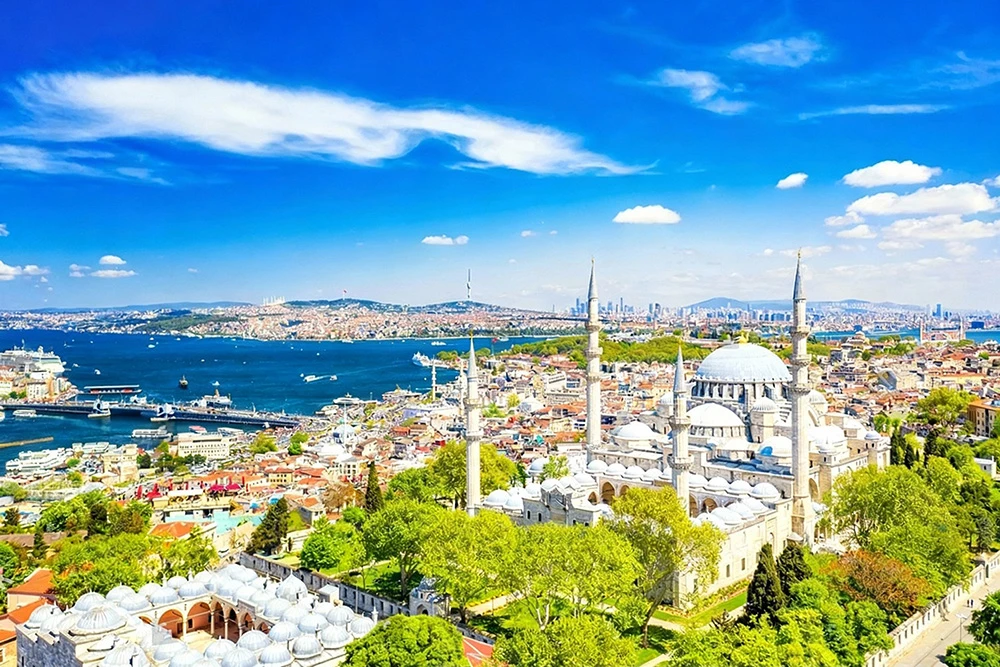
A quiet mystery tucked into Room 411
I swear the hallway near 411 felt like it was holding its breath. The brass seemed to glow a little warmer there, and the air carried a faint scent of old paper and lemon polish, the kind that clings to well loved wood. They say Agatha Christie wrote Murder on the Orient Express in this very hotel; and the legend goes softer still, that a lost diary slept inside its walls, only to be found decades later during renovations fittingly, in Room 411.
It makes sense, doesn’t it, that a place built for arrivals and departures would cradle both a story and a secret. I remember pausing by the old lift, thinking how some rooms are like suitcases packed with other people’s echoes. The wonder isn’t whether every detail is provable, but how easily your heart leans in to listen. That’s the quiet magic of Pera Palas Hotel: for a moment, you believe the past is still awake behind the wallpaper, turning its pages in the dark.
When tulips were guarded like royal secrets
I still can’t get over this: there was a time when a single flower could cost you your life. Someone once told me in Istanbul that, in the eighteenth century, taking a tulip without permission wasn’t just rude it was a capital crime. Imagine the candlelit gardens, colors pooling like dusk lacquer red, apricot, cream and the soft hush of petals the state decided to protect.
It sounds severe, but it says something about a place that takes fleeting beauty seriously, that treats joy as a resource worth guarding. I remember thinking how fragile our favorite moments are, how a season can arrive with perfume and color and then slip away before we can name it. Maybe that law was a hard shell around a tender feeling: a promise that wonder mattered enough to defend, even when it lasted only as long as a bloom.
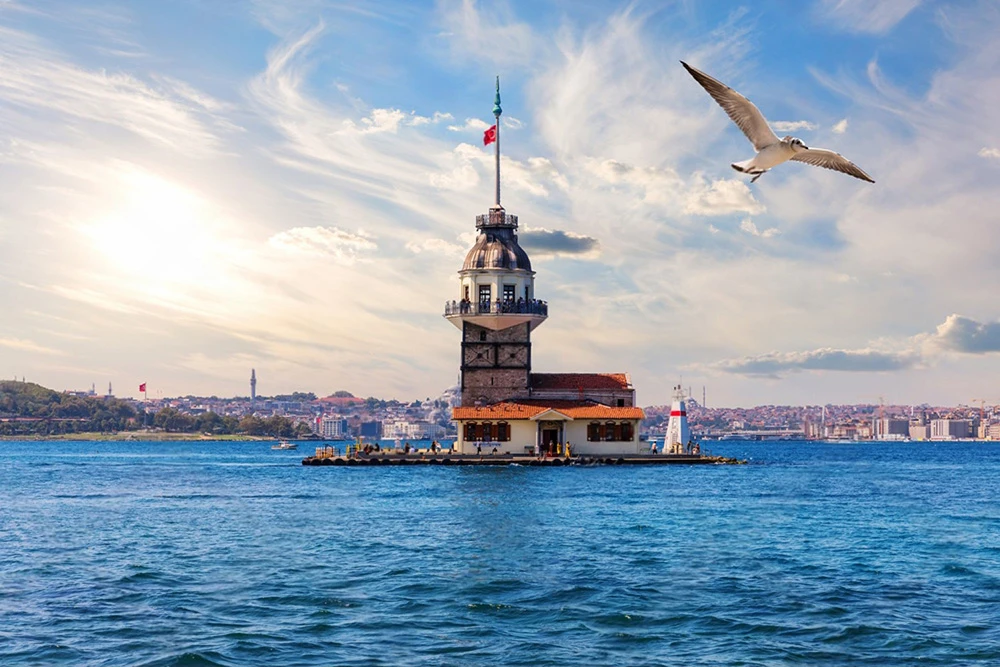
Six minarets, and a quiet Ottoman fix
Who knew a number could spark such whispers? The Blue Mosque rose with six minarets, and suddenly the faithful far and wide were buzzing – it matched Mecca’s Grand Mosque, a boldness that felt almost like borrowing a crown. Those slender towers still look like needles threading the sky, and I can imagine how the skyline itself must have sounded louder because of it.
Here’s the part I love: instead of taking one down, the sultan sent builders to Mecca and simply added another there. A solution as simple as a quiet bow – keep the glory, share the honor. It’s diplomacy laid in stone, the kind that lets pride breathe without stepping on reverence.
I remember hearing the call to prayer skim across domes and gulls in Istanbul, and the story felt suddenly human: ambition on tiptoe, faith respected, a city learning to be magnificent without forgetting its place. Six here, seven there, and the world kept turning, a little soothed, a little wiser.
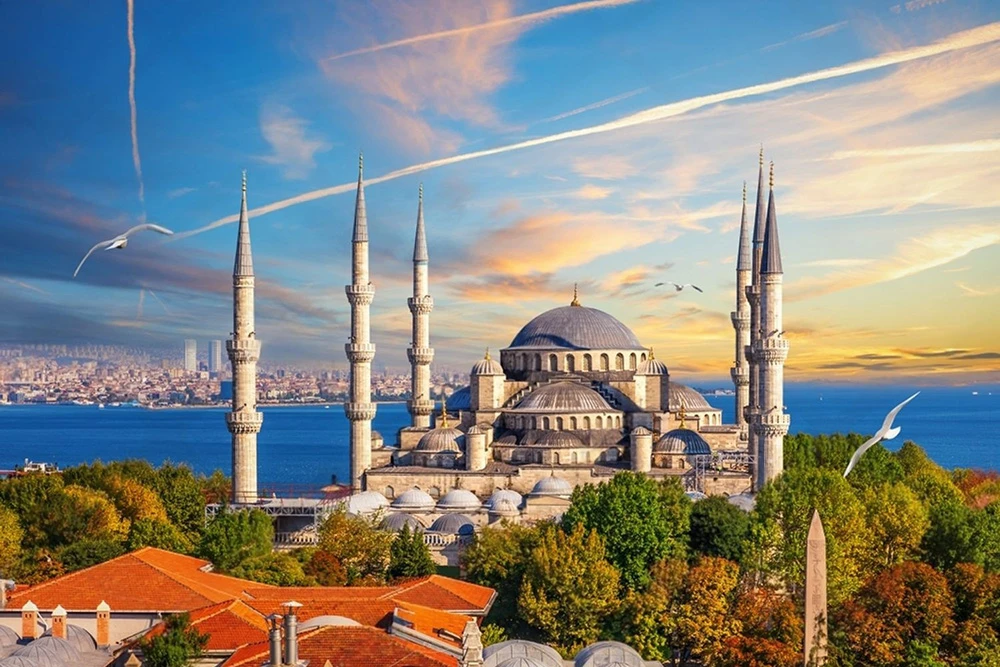
Three Horns Across a Quiet, Moving Border
I still pause when the gulls briefly fall silent and three bright notes ride the wind across the water. Somewhere in the middle of the strait, captains trade the same salute every day three short blasts, answered by the ferry gliding the other way. Diesel hum underfoot, a salt tinged breeze, tea spoons tapping glass everything gathers around that sound, a secret code spoken in daylight.
In Istanbul, most people let it blur into the day, but I always hear an invisible handshake between continents. Once, while leaning on the railing, it felt like the city was reminding me that two sides can be different and still belong to each other. That small ritual makes the crossings feel softer, a daily promise that the water divides and, at the same time, keeps us in conversation.
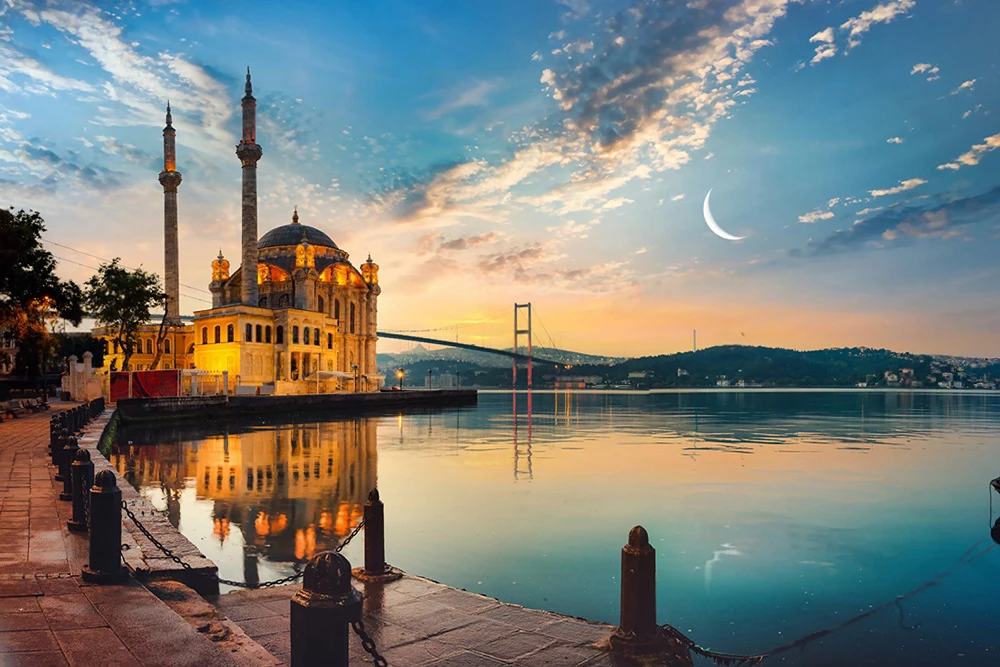
A palace that murmured verses without sleep
I like the idea that a place can keep a promise. In Topkapi Palace there was a room that once gathered the Prophet Muhammad’s sword, locks of his hair, even the imprint of his foot. For centuries, guards stood there and read the Quran aloud day and night, a living soundtrack that never broke. I imagine the sound low and steady, like a river that refuses to run out, brushing the glass cases and the old wood with a soft, faithful hush.
What surprised me most wasn’t the rarity of those relics, but the patience of that voice how devotion can be quiet and stubborn enough to outlast seasons, sultans, and sleep. There’s something tender about knowing words were always in the air, stitching the centuries together with a thin thread of sound. It made me think about promises we keep when no one is looking, and how a place can feel steadier because of it.
Shopping above, smugglers' tunnels below the Grand Bazaar
All that clatter of coins and saffron sweet air can fool you into thinking the bazaar is only surface. But a cool breath sometimes slips through the floorboards, and you remember there's an older story underfoot in Istanbul: Byzantine crypts stitched to secret tunnels, the kind smugglers and spies memorized by heart. Above, voices roll like a river; below, stone keeps its damp silence. Once, while drifting past a spill of lantern light, I felt a sudden hush and imagined the city’s hidden map curling beneath me.
People barter for carpets and copper, and yet some of those passages run straight to the Bosphorus, as if the city keeps a spare key in its pocket in case joy needs an exit. I like that balance the blaze of color overhead, the quiet of escape below because it says something honest about a place that has always lived between worlds. It made me trust the bazaar a little more: even shopping here carries a whisper of freedom.
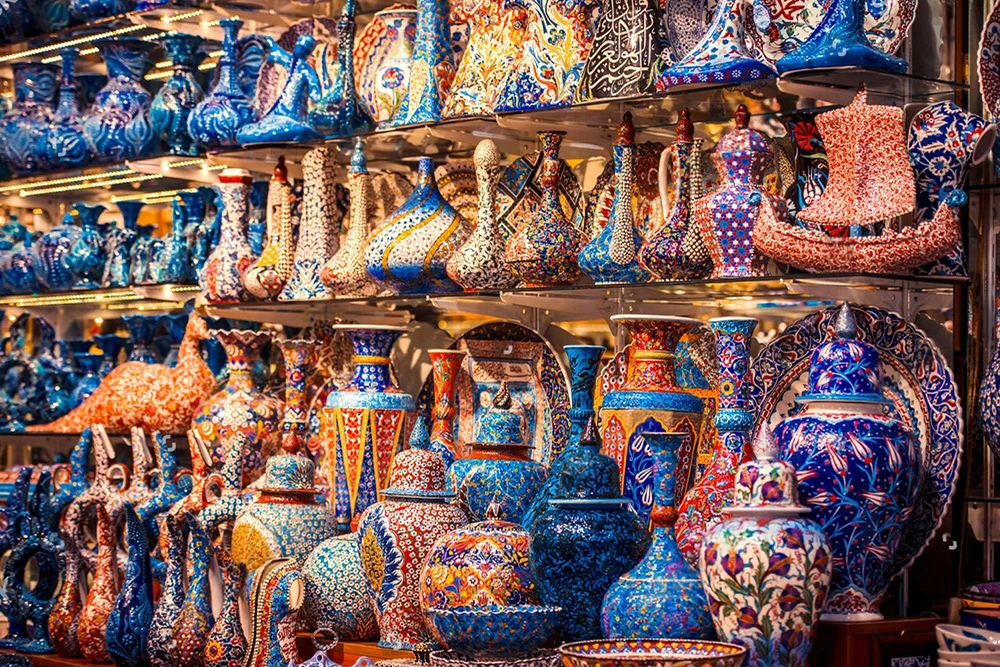
Where whiskers have passports and neighbors share guardianship
I didn’t expect to meet citizens with soft paws and steady gazes. On café terraces, the clink of tea spoons mingles with a low chorus of purrs, and the sun warm stone seems made for afternoon naps. By doorways, small bowls wait; on corners, cardboard shelters are tucked against walls. I remember a ginger under a lamppost, blinking slow approval as someone slid a plate near his whiskers.
In Istanbul, the cats are tended collectively, not as pets but as neighbors. Strangers top up water, shopkeepers arrange little shelters, and their lives spill into books and documentaries because people want to remember them properly. For a city of twelve million, they set the pace, and it feels like a quiet law the place decided to follow: care for the small, and the whole city softens. I left feeling steadier, as if their calm had rubbed off, the way a purr can settle a room.
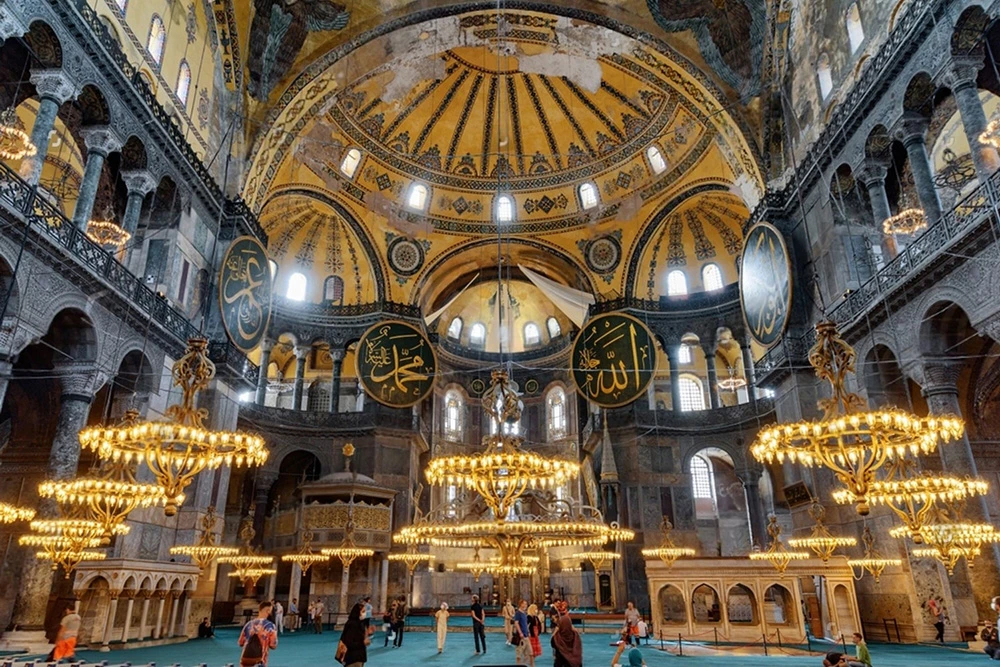
A column that never stopped weeping through empires
You’d think stone couldn’t remember, but here a single marble column stays damp, cool as a forehead at dusk. I touched the rim once and felt a shy wetness gather on my thumb, and it made the vastness around me feel suddenly intimate, like a tear that never learned to dry. They call it the weeping column in old Byzantine whispers, and the air seems to soften when you stand beside it.
Hagia Sophia has lived three lives church, mosque, museum and then found itself a mosque again; yet this one small ache of water keeps the whole story stitched together. Locals lean in with quiet wishes, pressing their thumbs into the moist circle, and I love how the ritual folds everyone into the same tender superstition. In a building that has weathered empires and arguments, this tiny droplet feels like a heartbeat under marble, reminding you that faith, in any language, always reaches for the same small miracle.
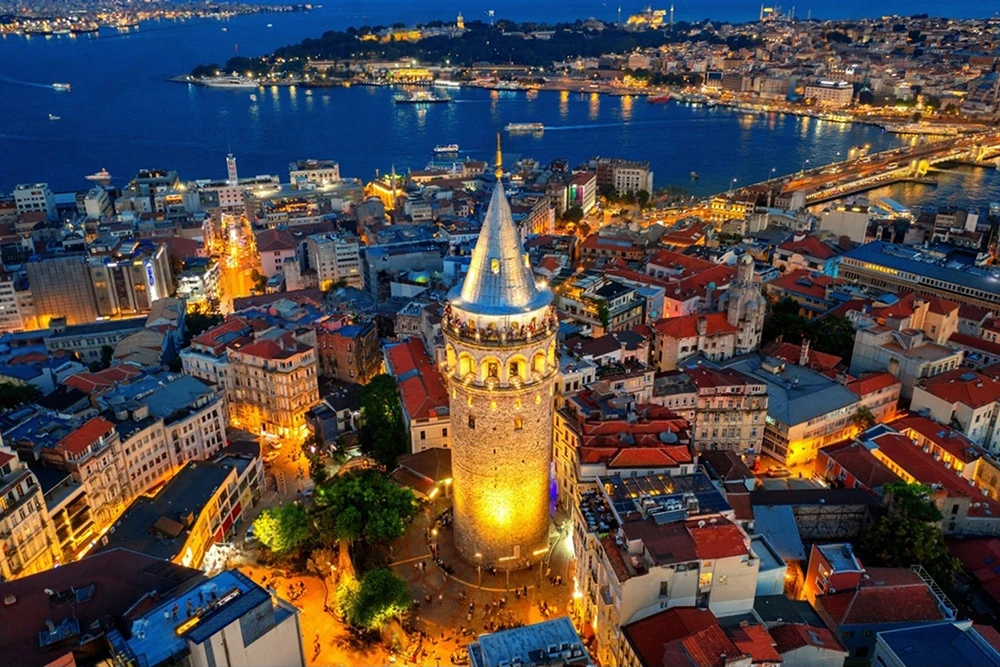
When a bridge tells the city’s quiet celebrations
I love how the night doesn’t shout here; it glows. The Bosphorus Bridge washes itself in pink, blue, or green, shifting with the seasons or a religious holiday, and suddenly the water below carries that mood like a secret. There’s salt on the air, the soft thrum of traffic above, and the lights keep slipping across the ripples as if they’re being folded by a careful hand.
I remember pausing with a warm cup of tea and thinking how tender it feels when a big city chooses subtlety. Pink feels like warmth coming back into your fingers, blue like a deep breath, green like fresh leaves after rain. It’s not a show so much as a reassurance: you’re here at the right time, and the night knows it.
What gets me most is the feeling that each color is a quiet message traveling from one shore to the other, a note passed between continents. No fireworks, no fanfare just a soft, steady glow that lets you belong for a moment, like being let in on a small, beautiful secret.
Snowstorms quiet the ferries across the strait
I never expected the sea scented wind to carry snow, but it does. One hour the gulls stitch the sky, the next the city is a shaken snow globe and everything slows. Blizzards roll in off the water and the ferry horns go quiet, leaving only the muffled thrum of waves and the crisp bite of cold in the air.
In Istanbul, the minarets turn white in minutes, and the domes pale until the mosques seem carved from ice instead of stone. I remember warming my hands around a steaming glass of tea while departures disappeared from the boards and strangers shared small smiles; the whole shoreline felt gentler, as if it had been waiting for this hush all year.
It still surprises me that a city surrounded by sea can be paused by snowfall, yet that pause feels like a gift. For a few hours, the bustle yields to quiet, and familiar silhouettes look new pure, simple, and somehow tender.
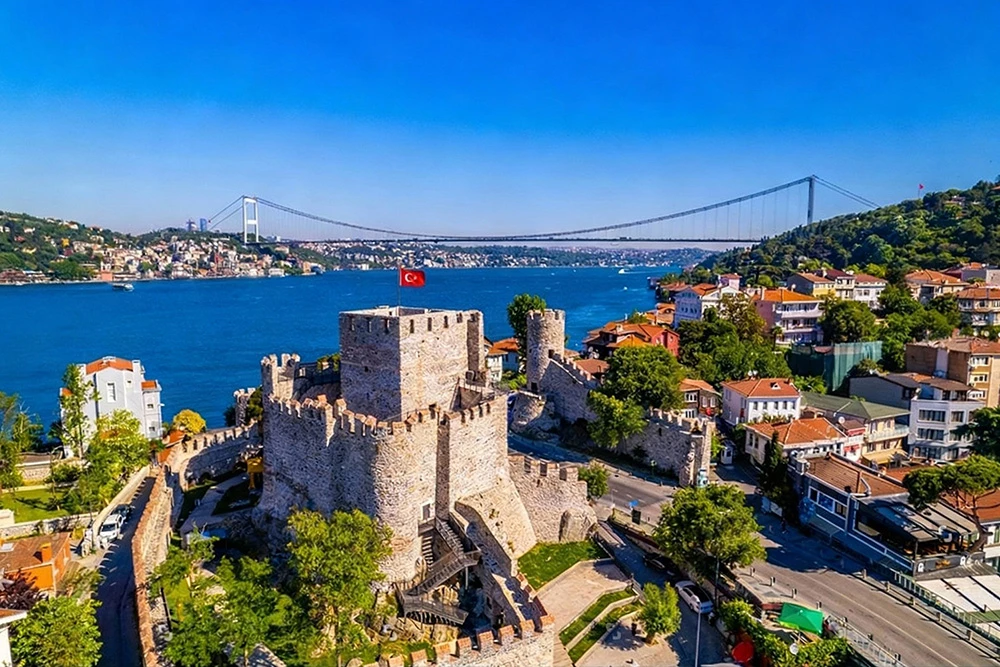
A market older than countries, still pricing by stories
Sometimes a place makes the present feel like a rumor. In the Grand Bazaar, born in 1461, I felt time stretch beyond the edges of the day. The air smelled of saffron and old leather, brass lamps warmed the corridors, and somewhere nearby you could hear the soft rustle of silk being folded.
They say it once held over 3,000 shops silk dealers, goldsmiths, spice traders shoulder to shoulder along corridors that seem to loop back on themselves. What surprised me most is how little the numbers matter without the chat; price tags sit quiet while a joke, a shrug, or a poured tea does the real arithmetic. I remember a merchant telling me his father taught him to listen before counting, and it made perfect sense there.
I left thinking that bargaining isn’t about haggling so much as a handshake with the past, a way of keeping an old rhythm alive. In a world that worships the fixed and fast, this place reminds you that value can be a conversation, and that’s why it still feels human after so many centuries.
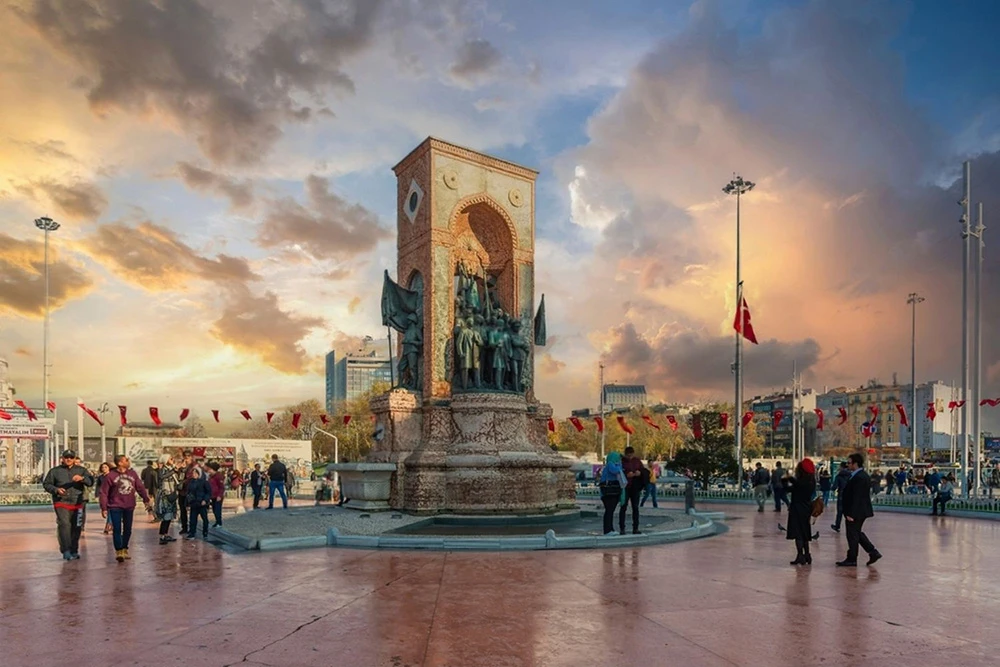
Surp Krikor, 1431: quiet diversity behind Galata
Some places speak in a whisper you feel in your ribs. Behind Galata’s slope, the Armenian Church of Surp Krikor Lusavoriç sits like a pocket of hush stitched into the city’s noisy coat. The stone feels cool even in summer, the air carrying a thin ribbon of candle wax and old wood. Built in 1431, it’s one of the oldest surviving churches in Istanbul, and you can almost hear the centuries settling gently in the shadows.
What gets me is how something so modest can hold so much. In a city famous for bright domes and ringing minarets, this small sanctuary is a quiet assertion that many stories can share the same sky. Empires have passed, seasons have changed, and still it endures less a monument than a small, steady heartbeat. I remember thinking how comforting that is: not every sacred place needs to be grand to carry the weight of belonging.
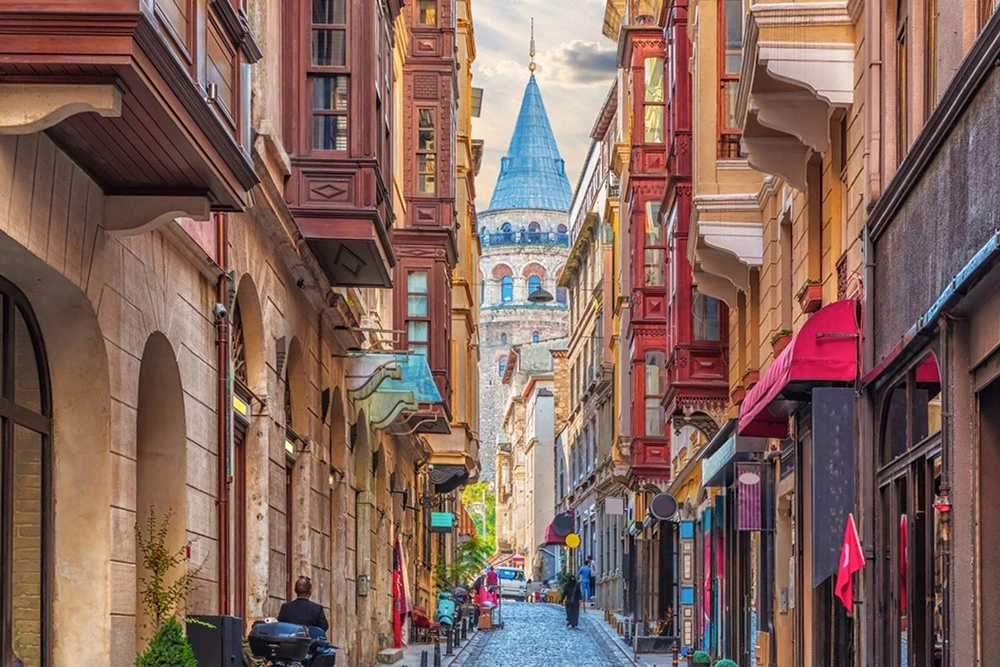
Ancient aqueduct threading through modern city traffic
It always makes me smile to see a Roman arc over rush hour. Built in 368 AD, the Valens Aqueduct stretches across downtown, its pale stone arches steady above honking taxis and kebab stands that perfume the sidewalk; sesame and charcoal mixing with a hint of sea salt in the breeze. Its line cuts the city like a stone spine, calm in the swirl.
I remember standing in its shade, listening to traffic thread the gaps and vendors call out, and feeling the centuries exhale. Not many masterpieces end up as the prettiest median you’ve ever seen, but that’s the charm here: useful, unshowy, still shaping the day. In Istanbul, that balance old endurance, new impatience somehow feels like the most honest welcome.
Treasure whispers over the Golden Horn's old rooftop
Funny how a rumor can outlast a dynasty. At Büyük Valide Han, the old caravanserai in Zeyrek, people still talk about the queen mother’s treasure, somewhere beneath these weary stones. Afternoon dust lifts in the courtyards, tea steam curls from glasses, and pigeons fuss in the shade. I remember pausing under a flaking arch, caught by that quiet feeling that makes you listen for something you can't quite name.
Most people come for the rooftop and the Golden Horn, for the soft light shifting across domes and ship masts by the hour. What stays with you is the story this idea of wealth tucked away like a coin under a rug, waiting for a hand that never comes. It makes the whole place feel tender and slightly enchanted, not because of riches, but because a city that remembers its legends is a city still alive. And it's comforting to think that, beneath the bright view and the clatter, a myth keeps breathing.
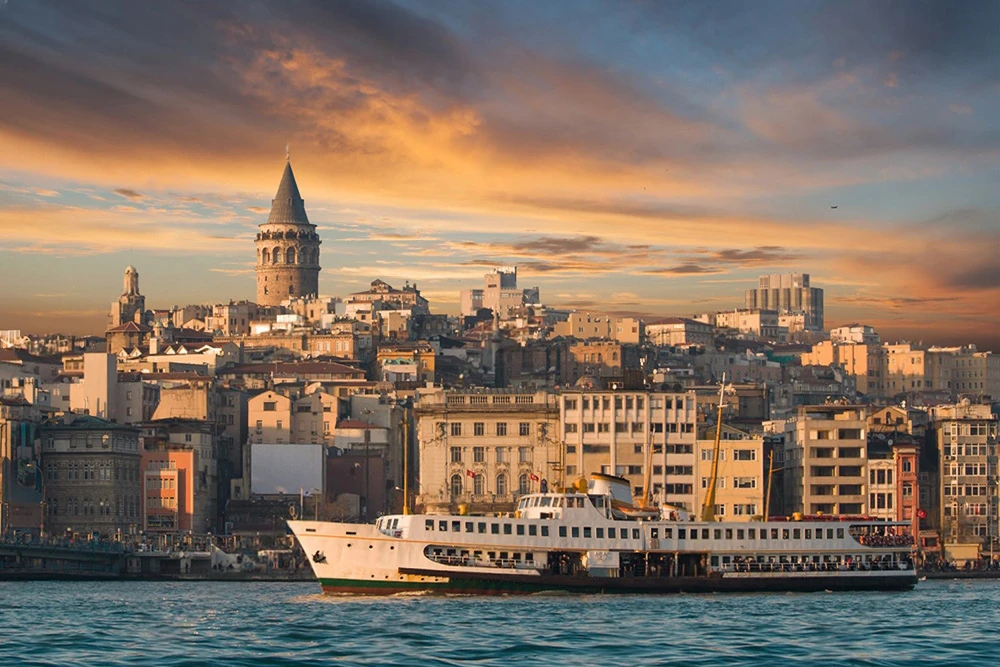
Once the crowded heart of three continents
Funny how a place can carry its old weight so lightly. I remember learning that in 1502, under the Ottomans, Istanbul held more souls than anywhere else – a crowded heart beating at the meeting point of three continents. You can almost taste that history in the salt on the air, hear it in the mix of prayer calls and market chatter, and feel it in the steady hum of boats on the water.
What gets me is why it happened: empires were drawn here for the same reason traders were, because crossings promise possibility. This is a hinge between worlds, and hinges don’t choose sides – they let everything meet. Standing by the straits, I get this quiet sense of belonging, like my own sense of place relaxes a little, and the city reminds me that life grows richer at the in between.
Ice dancers under domes in old Constantinople
I love the thought that winter once meant gliding feet and soft laughter tucked between domes. In the tenth century they laced up on frozen ponds, quietly practicing joy long before other Europeans skimmed their rivers. I picture crisp air stinging the nose, wool cloaks flaring, the clean hiss of blades etching little secrets into the ice.
They’ve even found it scratched into marble slender sketches of dancers on ice with round rooftops hovering behind. The lines are spare but full of motion, like notes on sheet music, proof that playfulness threaded through a world we imagine only in gold and incense. It makes me think of a city holding its breath in winter and then exhaling into laughter, reminding us that even in empires, people always found a way to feel light.
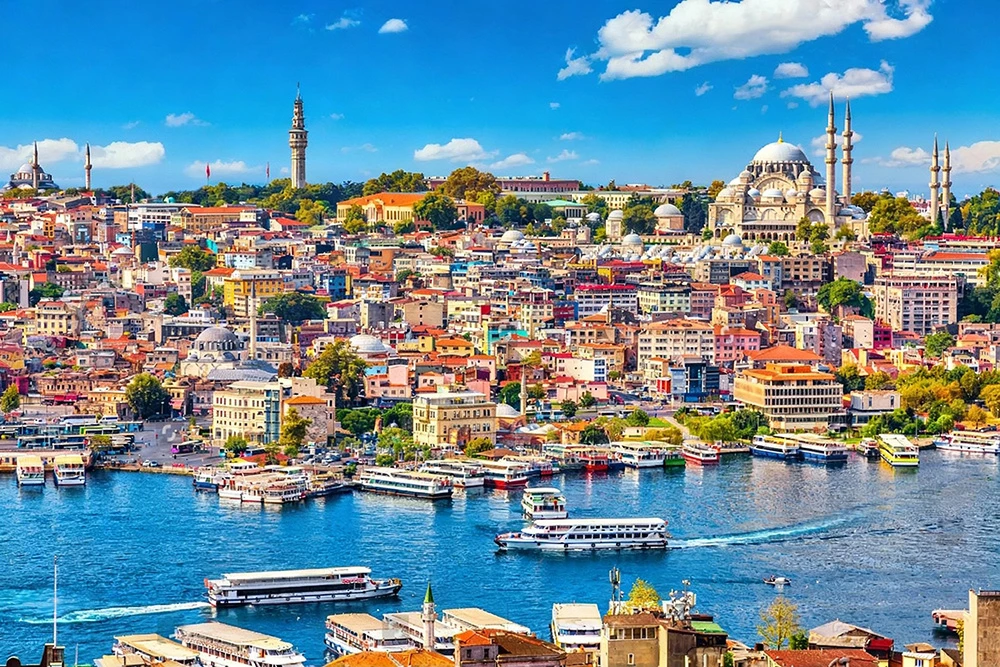
Hidden Byzantine palace beneath Sultanahmet’s ordinary neighborhood homes
The thought still gives me goosebumps: a family lifts old tiles in a basement and finds tiny colored stones from the 5th century, glinting through dust. A neighbor once told me how a renovation turned into a quiet pause, the air cooling with the kind of awe that makes everyone speak softer.
Those mosaic fragments pomegranate reds, evening blues hint at a Byzantine palace hiding beneath laundry rooms and tea glasses. In Sultanahmet, you realize the place isn’t just stacked with buildings; history sits right under your feet, a sleeping ballroom that families have unknowingly walked over for generations.
I love that, the way ordinary life keeps brushing against wonder. It makes daily noise feel softer and the walk home a little slower, because you can’t help imagining what else might be waiting, patient and bright, just below the floor.
Bitter cups and the taste of truth
The first sip caught me off guard thick, smoky, and unapologetically bitter. Someone once told me that sweetness came later; back then, the bite itself was the point. In Ottoman times, bitterness stood in for honesty, the kind that doesn’t smooth its edges or make excuses. I remember, in Istanbul, holding that warm little cup and feeling how the grounds settled heavy at the bottom, as if the past preferred to sit there and say nothing. Bitterness can be bracing, but also clarifying, like a mirror that doesn’t flatter.
They say court officials served it sugarless to test loyalty, watching for the smallest tremor. If you flinched, they assumed you had something to hide. What a quiet trial a whole reading of your heart in a mouthful, a key turning quietly in a lock. I like the idea that the sweetness we add now isn’t just flavor; it’s a softening of the world, a tiny kindness after all that stern truth. And yet, somewhere beneath the foam, the old lesson lingers: sometimes the truest things arrive without sugar.
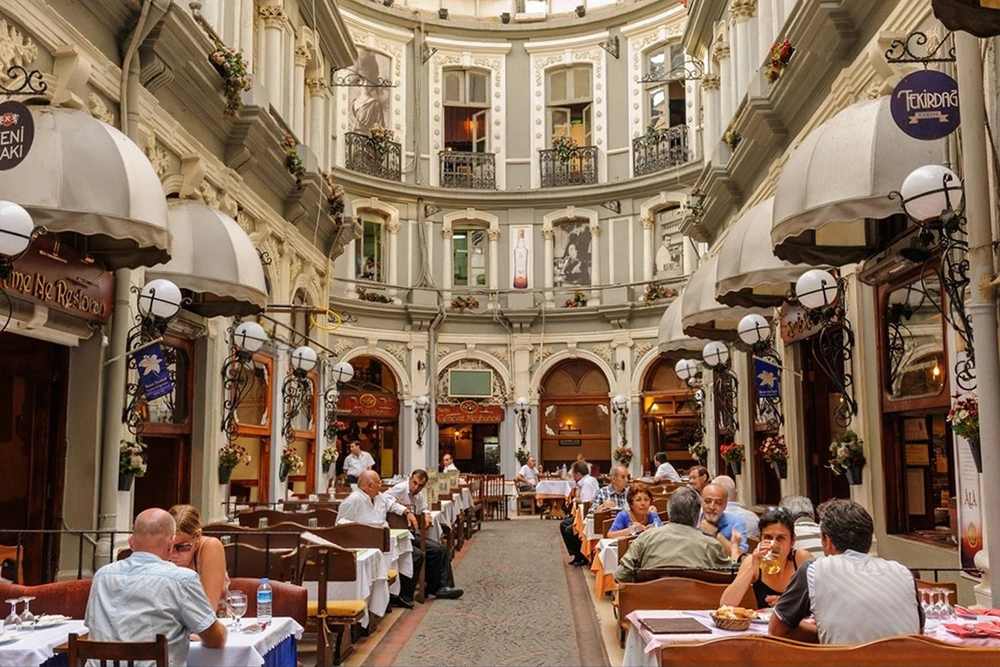
Worlds sleeping beneath clinking tea glasses
Sometimes, over a tulip glass of tea, I catch the faintest coolness rising from the floorboards and think about what’s dozing below. In Istanbul, they say there are three secret Byzantine cisterns still sealed, padlocked by caution after the 16th century, with their water breathing softly in the dark while life chatters above.
Archaeologists haven’t traced every underwater column yet, and that unfinished map makes the city feel deeper, like there are closed books stacked under our feet in a quiet library of water. I love the idea that entire worlds are napping beneath tea shops the scent of lemon peels and mint overhead, the hush of stone below reminding me that a place can be generous enough to hold mysteries without showing them off. It feels right that some rooms are allowed to dream a little longer, and that we, for once, don’t rush to wake them.
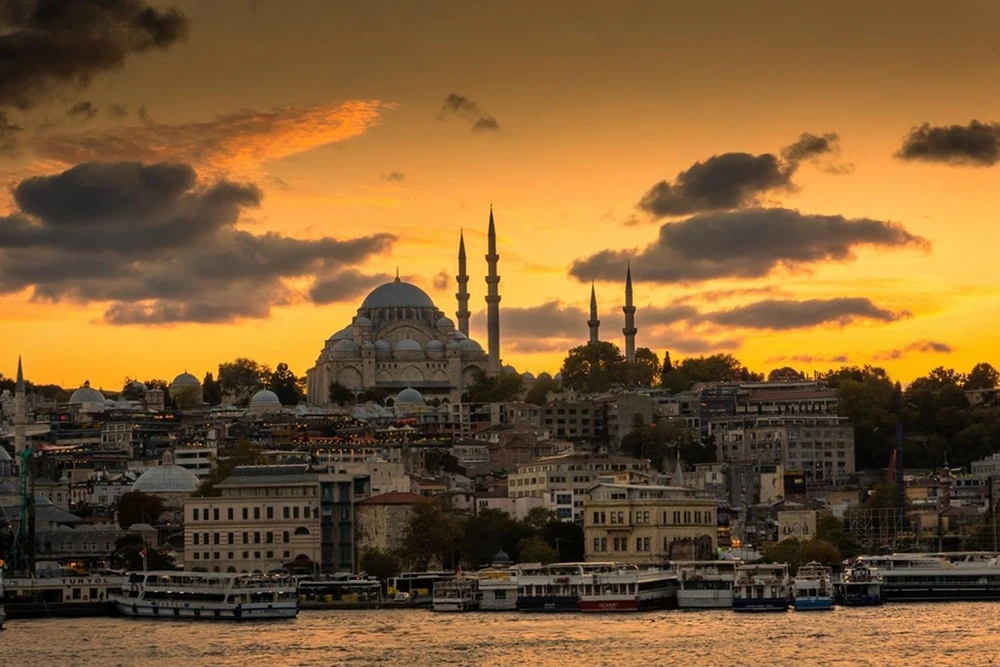
Blades Laid Gently to Keep Friendships Whole
It made me smile, the way a knife never leaps from one hand to another here. In the spice sweet hush of a bazaar, a vendor set the blade on the worn counter and nudged it forward, the steel glinting beside stacked tea glasses. People say you don’t pass scissors or knives directly lay them down first, or you might cut the friendship, as if the bond were a silk thread you’d rather not nick.
I love how a small rule turns sharpness into care. In Istanbul, even the everyday dance around a blade feels like an old-fashioned courtesy: a breath of space, a steadying pause, a shared understanding that words and hands should meet softly. Once, a seamstress did the same with her shears, and it felt oddly tender, like setting down a thought before you speak it. Maybe that’s the city’s secret amid clamor and color, even sharp things are handled with kindness.
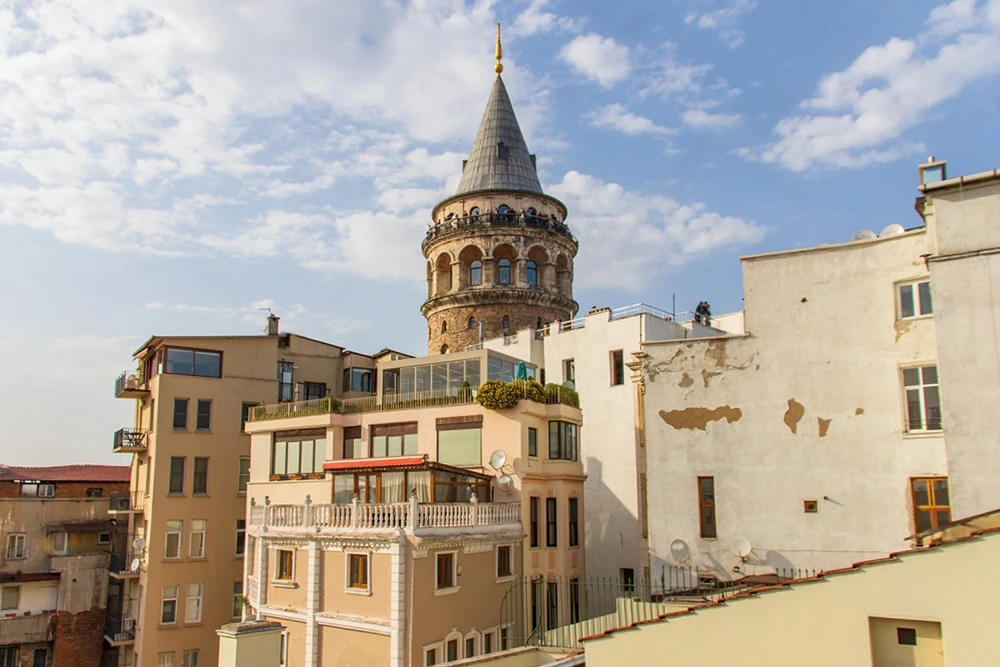
When coffee became a secret handshake for rebels
Hard to believe a warm cup could make a throne nervous, but it did. For years the rulers tried to snuff out coffeehouses, worried that ideas might gather like storm clouds. People met anyway, tucked behind curtains, voices low, the clink of porcelain a soft percussion. Steam rose, the air thick with cardamom and a kind of courage, and whispers threaded the room like smoke, finding their way through every crack.
In Istanbul, I remember holding a tiny cup that seemed to steady my hands and loosen my thoughts at the same time. Around me, strangers leaned in, trading stories that felt more like promises than gossip. It made me love the city for its stubborn gentleness the way conversation, shared in sips, can be both shelter and spark. Maybe that’s the quiet magic of coffee there: not the caffeine, but the belief that a small table and a few honest words can change the temperature of a whole day, and sometimes, if you let them, the course of a history.
Exiled street dogs, ghostly howls, and a city's heart
Some nights a bark skims across the water and I feel that tiny tug the place once tried to silence this sound. Long ago they rounded up the street dogs and shipped them to an empty island to end the complaints, as if you could mute a heartbeat. It backfired; neighbors poured into the streets, and rumors hardened into legends of ghostly howls drifting over the Bosphorus. Only in Istanbul could a simple bark become a small act of defiance, and a love story.
Now the dogs are everywhere again, at ease on their streets: sun warmed fur on worn stones, ear tags glinting in the sun, vendors greeting them by name. I remember the weight of a big head on my knee by the ferry pier and how quietly proud it made me these dogs belong here, adored, celebrated, somehow in charge. Maybe that’s why it moves me so much: it says that everyday kindness can be a civic choice, and that the soundtrack of home includes the steady, forgiving bark.
Where Memory Sips Tea With Today, Afloat Between Shores
I used to smile when people said “East meets West.” It felt so tidy for a place that spills over its edges. Then a small glass of ferry tea explained it better than any phrase ever could.
The glass warms your fingers; the steam smells faintly of tannin and sun. Spoons chime, gulls cry like they’ve always known your name, and the engine hums a low, steady comfort beneath the wind. Around you, wooden benches are polished by years of stories, while new ones arrive in the glow of phone screens; domes blur into cranes, and the shoreline keeps changing without ever quite letting go.
In Istanbul, it isn’t a crossing of compass points so much as a meeting of memory and modernity. Out there on the water, your tiny tulip glass turns into a small lantern, lighting both the old and the next, and for a single heartbeat the moment feels ancient, eternal, and somehow only yours. Then it slips away gently, like the wake softening behind the boat.
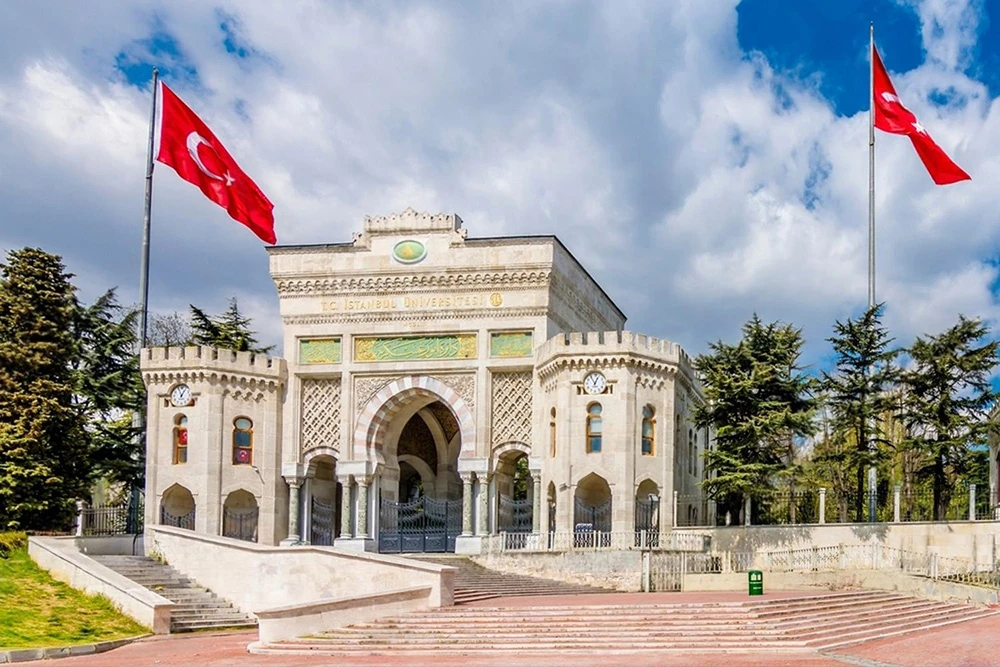
Final thought
In the end, it’s the small, fleeting moments that reveal the heart of Istanbul Turkey – the scent of fresh bread at dawn, the echo of laughter across the Bosphorus, the quiet prayer carried on the wind. Beneath its layers of empires and eras, the city moves like a tide – steady, tender, eternal. Istanbul isn’t just a meeting of worlds; it’s a conversation that never ends. And when you leave, it follows you softly, like a melody that keeps finding its way back into your dreams.

